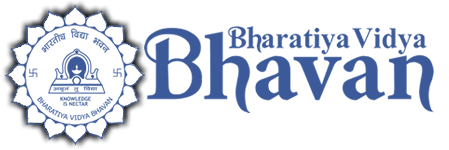
My Account | Online Catalogue | Contact Us
Munshi Saraswati Mandir Granthagar
(THE BHAVAN'S LIBRARY)
Category
- ONLINE QUIZ
- BOOK DISPLAYS
- May 2023: Mumbai - Story of the 7 Islands
- June 2022: Series (Multi-Volume) Publications
- December 2020: Children's Classics
- October 2020: Indian Regional Classics (Part 3)
- September 2020: Indian Regional Classics (Part 2)
- August 2020: Indian Regional Classics (Part 1)
- June 2020: Sanskrit Classics
- April 2020: World Classics
- January 2020: New Additions 2019 – English
- January 2020: New Additions 2019 – Gujarati
- January 2020: New Additions 2019 – Hin, Mar, San
- January 2020: New Additions 2019
- December 2019: Gita Jayanti
- September 2019: Teachers' Day
- August 2019: Independence Day
- October 2018: Gandhiana
- September 2018: Gujarati Popular Literature
- August 2018: Parsiana (Zoroastrian) Collection
- July 2018: Makers of Modern India
- June 2018: World Classics in English
- May 2018: Reference Works
- April 2018: Jnanpith and Sahitya Academy Winners & Publications
- March 2018: Eminent Women of India
- February 2018: Ramakrishna Movement
- January 2018: Best of Indian English Literature
- December 2017: Making of the Constitution of India
- November 2017: Chacha, Children and Priyadarshini
- October 2017: Gandhian Collection
- FEATURED BOOKS
- ઘનશ્યામ દેસાઈ (૧૯૩૪ – ૨૦૧૦) / Ghanshyam Desai (1934-2010)
- ધીરુબહેન પટેલના પુસ્તકો
- Books by Amitav Ghosh
- Books by Amartya Sen
- डान् क्विक्षोटः Don Quixote
- Children’s Classics
- Regional Classics (Part 3) - Translations
- Regional Classics (Part 2) – Translations
- Regional Classics (Part 1) – Translations
- Sanskrit Classics – Editions and Translations
- World Classics – New Editions
- The Bhagavad Gita with Eleven Commentaries
- PERSONALITIES
- DATES & EVENTS
- ARTICLES
- FESTIVALS OF INDIA
- DRAWINGS & PAINTINGS
Library Blog
Contributions like articles, book reviews, book abstracts, etc. are welcome from Library Members, Bhavan’s staff, and friends and supporters of the Library.
Articles: A Scholar of Sorts
Author: V.S.R.K
Source: Bhavan's Journal, February 15, 1997
Scene: A house in a village In Kerala.
Year: 1960
"The boy is quite clever but doesn't want to study".
The man's wife smelt trouble in the air. She would neither agree with her husband nor disagree with him. If she did one way or the other, there would be a quarrel. However, she butted in.
"Who said he is not clever?"
"Of what use is cleverness without knowledge? The boy will turn out to be a cheat or a pick-pocket."
"My son will never go the wrong way. The other day..."
"Stop, I have heard it all before. He told you how many mangoes were missing from the tree in our backyard...who were all the people he saw at the theatre ... how many women were there at the local temple festival... how many boys were of his age in his class ... His brain is a lumber of much useless information."
"The boy has a certain talent. He will be a great scholar if only…"
"Great! Great as a rogue, rickshaw-puller or hotel-server."
"But I have no doubt."
* * *
Scene: A big building at Chowpatty in Mumbai.
Year: 1997
The boy of the earlier scene has grown up. He is engaged in a 'learned' discussion, with a person.
Person: (P) R.C. Majumdar says that the 1857 Sepoy Mutiny cannot be called the First War of Independence.
Boy (B): Please read Dr. Tarachand.
P: For Western Philosophy which book would you recommend?
B: Bertrand Russell
P: What about Will Durant?
B: Good for the study of civilisations.
P: Between Toynbee and Durant?
B: One writes on history and the other on civilisations. That is that. You have to read both.
P: When you talk of civilisations, there is this controversy over the Aryans-whether they were invaders or autochthonous.
B: The controversy is unending from Vincent Smith and Tilak to Aajaram and Renu.
P: The Aryans unnecessarily created class distinctions. Didn't they?
B: Not exactly. Read Sardar K .M. Panikker, and Bhavan's 'Vedic Age' will help.
P: What poetry is there in the Vedas! Anything comparable in English literature?
B: Wordsworth, Shelley, Blake, Tennyson, T.S.Eliot.
P: Yes, I know. There are echoes of Vedanta in their works.
B: Vedanta! Has anyone spoken more about it than Swami Vivekananda?
P: In modern times, Swami Ranganathananda.
B: Swami Ranganathananda is, perhaps, at his best in 'Eternal Values for a Changing Society'.
P: Yes, indeed. But Swamiji is a greater crusader for Sarva Dharma Samabhava or Samanvaya.
B: Secularism, you mean. Chagla, Gajendragadkar and many others have written on the subject.
P: Secularism in a predominantly religious country is difficult. Even Sardar Patel was not spared. He was looked upon as anti-Muslim.
B: Dr. Rafiq Zakaria has a new book 'Sardar Patel and Indian Muslims.'
P: I want to take home some good book for peace of mind.
B: Read Gita. How many translations are there! Take Chidbhavananda's.
P: My ambition is to write a good book. Can you guide me?
B: Why not? These days one writes a book out of many books, with or without quotation marks.
(The conversation is interrupted when a female voice calls for the 'boy'.)
Female Voice: Govind, come here. Here is a gentleman who wants a book on Sanskrit poetics.
B: Coming, Madam. (Murmurs) Kane, De, Krishna Chaitanya.
P: How is it that you know so many things?
B: My mother wanted me to become a scholar. I am a scholar, a sort of. I am the chief library attender here.